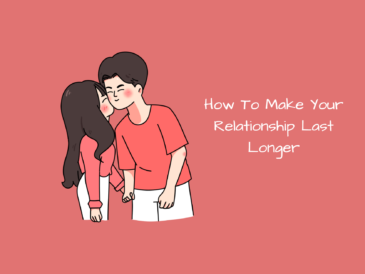The concept of unconditional love, loving someone without expecting anything in return, is both ancient and profoundly modern. It’s a theme that runs deep through literature, philosophy, and psychology, reflecting the complexities and challenges inherent in human relationships.
This form of love, often idealized, requires a deep understanding of oneself and others, as well as a commitment to personal growth and emotional generosity. The paradox of loving without expectations lies in the discovery that, by giving freely, we often receive far more in return.
This blog explores the nuances of this paradox, shedding light on how embracing unconditional love can lead to a more fulfilling emotional experience.
Paradox Of Loving: The Complexities And Challenges
Understanding Unconditional Love
Unconditional love is the act of loving someone without conditions or expectations. It’s a selfless form of love that doesn’t seek reciprocity, reward, or acknowledgment.
This type of love requires a profound level of emotional maturity and the ability to separate one’s own needs and desires from the act of loving itself. It challenges societal norms and personal instincts, which often equate love with possession, control, or exchange.
The Challenges Of Loving Unconditionally
One of the main challenges of loving without expectations is overcoming the innate human desire for reciprocity. From childhood, individuals learn that most actions have reactions, and relationships often operate on a give-and-take basis.
Unconditional love asks individuals to transcend this conditioning, to love without an agenda or a guarantee of being loved in return.
It also involves accepting and loving the other person wholly, including their flaws and differences, which can be difficult when personal biases and expectations come into play.
Emotional Growth Through Unconditional Love
Engaging in unconditional love can be a powerful catalyst for emotional growth. It encourages individuals to confront and overcome personal insecurities, such as fear of rejection or abandonment. By focusing on giving rather than receiving, individuals learn to derive fulfillment from the act of loving itself.
This process fosters self-awareness, empathy, and compassion, contributing to a deeper understanding of what it means to love and be loved.
The Fulfilments Of Selfless Love
The paradox of unconditional love is that, in giving love freely, individuals often find themselves on the receiving end of profound emotional rewards.
These rewards may not always come from the object of their love but from the internal sense of peace and satisfaction that comes with letting go of expectations.
This form of love can lead to more genuine, open, and fulfilling relationships, characterized by mutual respect and understanding rather than transactional dynamics.
Navigating The Realities Of Unconditional Love
While the concept of unconditional love is noble, it’s essential to navigate its application realistically. Loving without expectations does not mean tolerating disrespect, abuse, or neglect.
Setting healthy boundaries is crucial to ensuring that unconditional love is
both given and received in a manner that respects the dignity and well-being of all involved. It’s about finding the balance between selflessness and self-care, ensuring that love remains a source of strength and not depletion.
Conclusion
The paradox of loving someone without expecting anything in return reveals
a profound truth about human relationships: the act of giving love can be its own reward, leading to a richer, more fulfilling emotional experience.
Unconditional love challenges individuals to grow, to embrace vulnerability, and to experience the depth of human connection in its purest form.
By navigating the complexities and challenges of loving unconditionally, with awareness and boundaries, individuals can discover the transformative power of love to heal, inspire, and uplift.






